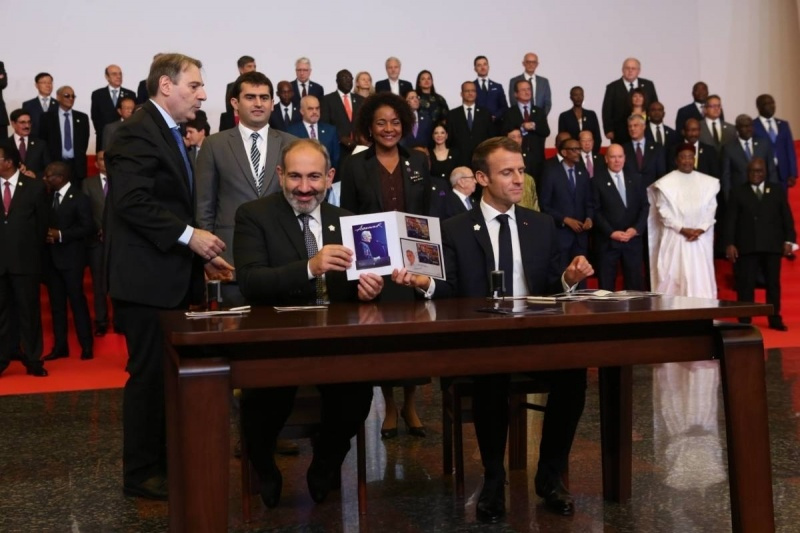Can the Francophonie Summit Help Armenia Out of Isolation?

The 17th Summit of the International Organization of the Francophonie, founded 48 years ago with the participation of French-speaking countries, including "Emanuel Macron" President of France, Canadian Prime Minister Justin Trudeau and Lebanese President Michel Aoun and several other officials was held in Yerevan on October 11-12, 2018. The organization consists of French speaking countries, and based on the latest changes, comprises 58 countries as members, and twenty countries as observers.
Ratification of previous meetings’ agenda, economic reports, preparation of member countries’ foreign ministers’ visit, discussion of request memberships, electing of the venue of the next summit, and ultimately, the final statement were on the agenda.
The foreign ministers’ meeting started was inaugurated by Armenian FM words of Zohrab Mnatsakanyan on October 16. Emmanuel Macron, French President, was accompanied by his wife, Brigitte Macron. On the afternoon of Friday, October 12th, France’s First Lady visited the Blue Mosque of Yerevan, and became acquainted with the history of this mosque, which is a remnant of the Iranian architecture in Caucasus. With the expected cancellation of Emmanuel Macron’s visit to Iran due to political reasons, his wife had a chance to know about our country through our neighbors and our cultural heritage.
The Canadian Prime Minister Justin Trudeau, along with his wife, Sophie Grégoire Trudeau, attended the meeting and also discussed bilateral relations with Armenia. Given the fact that the Canadian Parliament recognized and condemned the alleged [sic] Armenian genocide in 2002, the visit of this high-ranking Canadian official bears importance for Armenia.
Besides increasing the opportunity to establish closer ties with other countries, the 17th summit of the International Organization of Francophonie in Yerevan will also create an opportunity for Nikol Pashinyan to mobilize his country's public behind himself. The Armenian PM, despite the lack of a majority in the Armenian parliament, has succeeded in securing the premiership seat and, with the support of the people has forced all parties to accept early elections in December this year with the aim of seizing the majority of parliamentary seats. His maneuvers, domestically and internationally, have been instrumental in stabilizing his position, especially against the Armenians of Qarabagh and Russia, who are not optimistic about him.
Artashes Toumanian, Armenian ambassador to Iran, whose mandate in Iran will soon end has called Armenia the gateway for Iran to enter Eurasia. However, his country has occupied 20% of Azerbaijan's territory and has open borders only with Georgia and Iran. He noted that attendance of the Francophone Summit is open to the public and individuals and countries. However, Armenia did not invite Iran to attend the summit as a guest. Iran’s participation in this summit as an observer could lead to permanent membership in this organization, a platform to strengthen public diplomacy, strengthening multilateralism, especially knowing that the French language held a dear position in Iran historically, and could be a buffer against Washington’s unilateralism.
In spite of all the recent domestic and foreign successes, the new prime minister of Armenia, Nikol Pashinyan, who has risen with support of the people of Armenia and turned his country into a symbol of democracy in the region, can do little in helping the country in taking steps to stop Russian intervention and to withstand economic isolation and bring welfare to the Armenians as long as Yerevan insists on seizure of Azerbaijan territory (with direct aid from Moscow and political support by the West) and refusal to return these lands to Baku.

